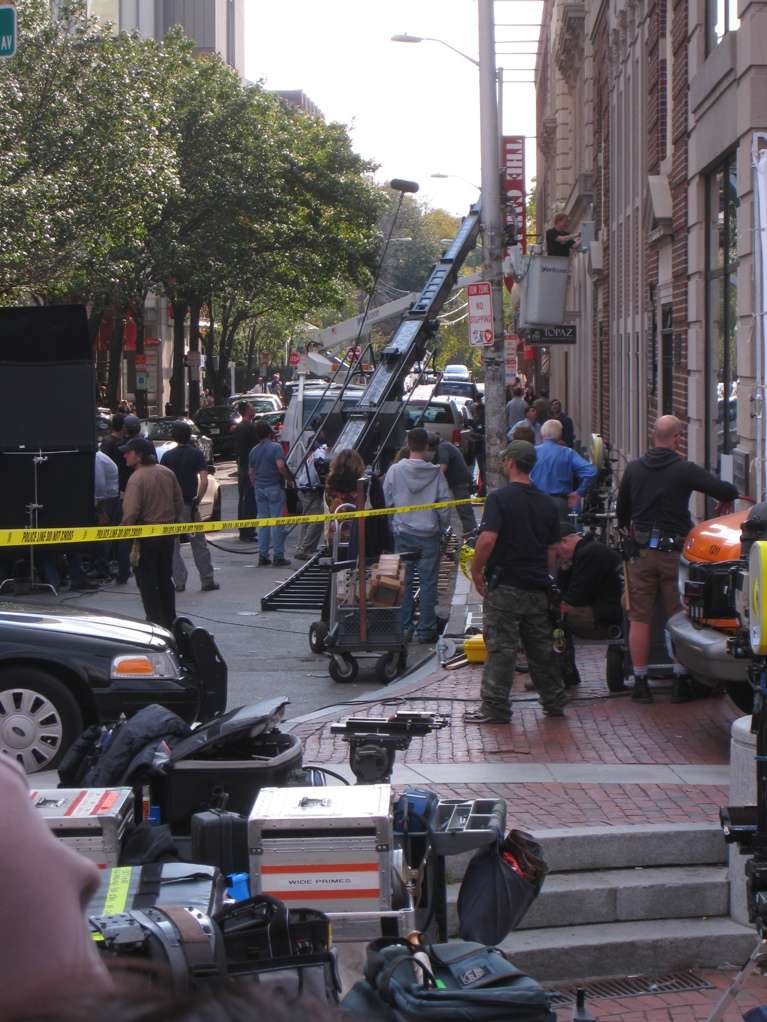Several of the 40 states that offer film tax credits to movie producers are having second thoughts about the generous benefits, according to the Los Angeles Times.
The Times says that many states continue to support and even expand their film tax credit programs, but it also reports that a number of states, including Wisconsin and Iowa, are scaling back their film tax credits as they deal with shrinking tax revenues. Others, like Michigan, are debating whether to reduce their outlays for films.
In Wisconsin, Gov. Jim Doyle scrapped the state's 25 percent film tax credit after the Department of Commerce issued a report indicating there was little economic benefit. The report said the state's $4.6 million outlay for the Johnny Depp film Public Enemies was just barely offset by the estimated $5 million the producers spent in Wisconsin, according to the Milwaukee Journal Sentinel.
Iowa had been offering a 50 percent tax credit on certain qualifying film expenses, but faced with a large budget shortfall this year, lawmakers capped the program's cost at $50 million a year. Gov. Chet Culver put the program on hold more recently after an internal audit found a number of irregularities.
Gov. Deval Patrick also had second thoughts about the Massachusetts film tax credit during budget deliberations earlier this year, pushing through the Legislature a measure that would have capped at $2 million the amount of a star's salary that would qualify for the state's 25 percent film tax credit. Patrick administration officials estimated the change would save the state $20 million this year.
But after the producers of a Tom Cruise-Cameron Diaz movie complained about the change and suggested they might take their $150 million movie elsewhere, Patrick changed course and signed another measure into law that eliminated the star salary tax credit cap. Cruise and Diaz are currently in the state filming.
A push by Patrick to require more public disclosure about the costs and benefits of the state's film tax credit also died in the Legislature. Patrick pushed for a measure that would have required state agencies to identify all tax credit recipients and disclose how many credits they received, how many jobs they created, and what those jobs paid.
The House and Senate both approved the measure, but the Senate amended it to shield the names of tax credit recipients from public scrutiny. Senators said they feared naming names might discourage filmmakers from coming to Massachusetts. Patrick balked at the change and urged lawmakers to approve the measure the way it was originally drafted, but the Legislature never took it up again and it died.
One of the reasons sentiment turned against the film tax credit in Wisconsin was the release of details about what kind of spending the state was supporting with its tax credit program. For example, Public Enemies paid almost twice as much in salaries to non-Wisconsin residents as it did to Wisconsin residents, according to the Journal Sentinel. The film also received tax credits to offset part of the $5,625 cost of Depp's hairstylist, part of the $16,490 cost of his makeup artist, and part of the $38,771 cost for two chauffeurs, according to the Times.
The Times story said critics of the film tax credits don't see the longer-term economic benefits of promoting the nomadic movie industry and favor using economic development tools to support less mobile industries that will put down roots.
Here in Massachusetts, Plymouth Rock Studios today took another step toward putting down roots. The company announced it had secured a $550 million construction loan from Prosperity International of Orlando to build a film studio in Plymouth with 14 soundstages, offices, a theater, hotel, and retail facilities. Plymouth Rock officials say they have leasing commitments for almost 60 percent of the available office, postproduction, and retail space.



